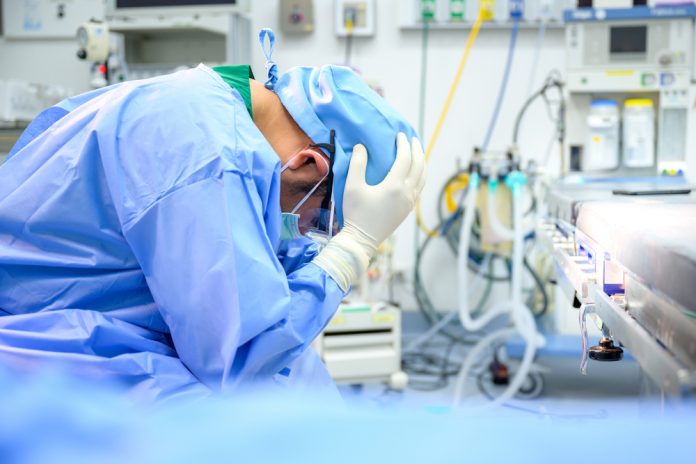Half of junior doctors surveyed at the Sunshine Coast’s top hospital fear they’ll make a medical mistake because they’re exhausted, according to the peak representative body.
A survey of juniors at Sunshine Coast University Hospital (SCUH) found 52 per cent were burnt out from working excessively long hours.
But nearly half said they had not been paid for all the overtime and one-third said they were advised not to claim extra hours.
Forty-two per cent did not claim overtime for fear it could negatively affect their assessment.
The situation was worse for the trainee doctors who rotated between hospitals in the Sunshine Coast region, with 75 per cent citing fatigue.
There are more than 200 junior doctors and first-year interns currently working with Sunshine Coast Hospital and Health Service.
The survey of 808 interns, house officers and other juniors across the state was part of AMA Queensland’s 2021 Resident Hospital Health Check (RHHC).
The Australian Medical Association Queensland is currently negotiating with Queensland Health for the wages and conditions of all Medical Officers, RMOs/Registrars and Senior Medical Officers, with the existing agreement expiring in June.
Like stories that inform, connect and celebrate the Sunshine Coast? Get more by subscribing to our free daily news feed: Go to SUBSCRIBE at top of this article to register
AMA Queensland Council of Doctors in Training (CDT) co-chairs Drs Robert Nayer and Natasha Abeysekera said there was an upward trend of new doctors on the Coast being pushed to their limits.
“Every year more and more doctors in training raise fatigue as a key concern and they need to be heard before their fears become a reality,” Dr Nayer said.
“All of those figures are above the statewide average.”
 Dr Abeysekera said bullying, discrimination and sexual harassment were significant issues, with 32 per cent of junior doctors at SCUH and 44 per cent at other Coast hospitals saying they had been targeted.
Dr Abeysekera said bullying, discrimination and sexual harassment were significant issues, with 32 per cent of junior doctors at SCUH and 44 per cent at other Coast hospitals saying they had been targeted.
“In addition, 48 per cent of junior doctors surveyed who work at other Sunshine Coast hospitals said they had witnessed this behaviour at work, just 38 per cent said they had reported it and disturbingly, none of those who had made complaints felt the matter had been appropriately addressed.”
The overwhelming majority were concerned there might be negative consequences for reporting.
Dr Sue Nightingale, from Sunshine Coast Hospital and Health Service, said the hospital had recently undertaken a program to reduce fatigue by reducing overtime and increasing junior doctor numbers to share the workload.
“This year has been a challenging year for all Queenslanders, but we remain dedicated to providing an organisation that is supportive and provides great work-life balance,” said Dr Nightingale.
“Our Culture of Care program has been embedded throughout the health service and this year saw the continuation of our Peer Support Program and a specialist staff support and wellbeing program to support staff working with the COVID-19 response.
“We are providing exceptional patient care and we take action when it comes to inappropriate workplace behaviour.
“We have zero tolerance for bullying and workplace harassment at SCHHS. We pride ourselves on being an organisation that values our staff.”
Sunshine Coast Local Medical Association president Dr Roger Faint said overwork was an ongoing issue but the situation had improved.
Dr Faint said first year interns were now required only to work a standard day shift and gained more responsibility in the second year.
“They used to get worked very hard and thrown in the deep end but now it seems to have improved,” said Dr Faint.
“There is a fair bit of stress and anxiety when starting any job but in medicine it’s moreso because you are dealing with people’s lives.
“Queensland Health has worked hard to change the ethos but it never seems to be enough.”
Dr Nayer said the pandemic had layered extra pressures onto clinical staff and more than ever, hospitals needed to provide a safe, supportive environment for junior doctors.
“They are essential workers and we need to train and retain the next generation of doctors in workplaces where they are respected and appreciated, so that they in turn can provide excellent patient care,” he said.
“These trainee doctors are working exceedingly long hours, often in a very stressful environment, and this can leave some members of the profession vulnerable to anxiety and depression. We do not want to see anyone exit the profession early, due to inadequate safeguards and support.”





